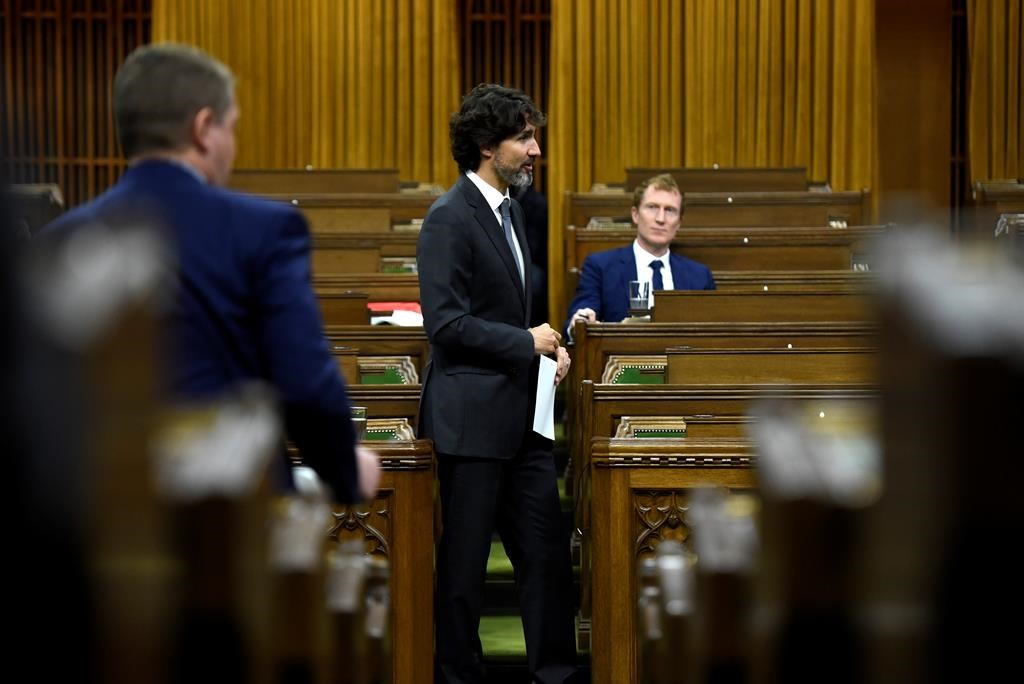Support strong Canadian climate journalism for 2025
The non-partisan spirit that has allowed Parliament to swiftly pass emergency legislation during the COVID-19 pandemic seems likely to come to an abrupt end today.
And that could leave in limbo a number of promised measures, including benefits for disabled Canadians and expansion of the wage subsidy program to include seasonal workers and some additional businesses.
The Trudeau government's latest bill — which would also impose penalties for fraudulently claiming the Canada Emergency Response Benefit — appears to have no support among the main opposition parties.
Without unanimous consent, the government will not be able to pass the bill this afternoon after just a few hours of debate, as it has done with four previous pandemic-related bills.
The NDP is balking at the prospect of Canadians who fraudulently claim the $2,000-a-month CERB being fined or sent to jail — despite Prime Minister Justin Trudeau's assurances that the punishment is aimed at those who deliberately defraud the government, not those who make honest mistakes.
The Conservatives are holding out for a full resumption of House of Commons business.
And the Bloc Quebecois is demanding three conditions be met before it will support the bill: a fiscal update this month, a first ministers' meeting before September on health care transfers to the provinces and a ban on political parties accessing the wage subsidy to avoid laying off staff.
Negotiations were continuing behind the scenes late Tuesday and were expected to go down to the wire today.
But Liberal insiders conveyed less willingness to make concessions this time and concede an impasse is a distinct possibility.
The minority Liberals would be able to proceed with the bill with the support of just one opposition party but that would take days or weeks longer. And even that seemed like a long-shot.
Government officials, speaking on condition of anonymity because they were not authorized to discuss the matter publicly, said the government will, if necessary, find other ways to deliver on some of the measures that are included in the bill, although that could entail delays.
In particular, they said the government will follow through on the promised one-time tax-free payment of up to $600 for Canadians with disabilities, announced by Trudeau last week.
The bill includes a provision to allow Revenue Canada to share information so that the benefit can be delivered to Canadians who are eligible for the disability tax credit. Officials said a different delivery mechanism can be found if necessary.
The bill also includes changes to the CERB in response to concerns that the benefit is discouraging people from returning to low-paying jobs. People would be cut off if they fail to return to work when "it is reasonable to do so" and their employer has asked them to come back, or if they are able to work but decline a reasonable job offer.
As well, it would allow people to make claims for the CERB for a two-week period, rather than the current four weeks. That is intended to help Canadians experiencing short-term job loss or having to take time off work to quarantine themselves or care for someone diagnosed with COVID-19.
It would also protect Canadians from penalties for missing deadlines in legal matters due to the pandemic.
This report by The Canadian Press was first published June 10, 2020.





Comments